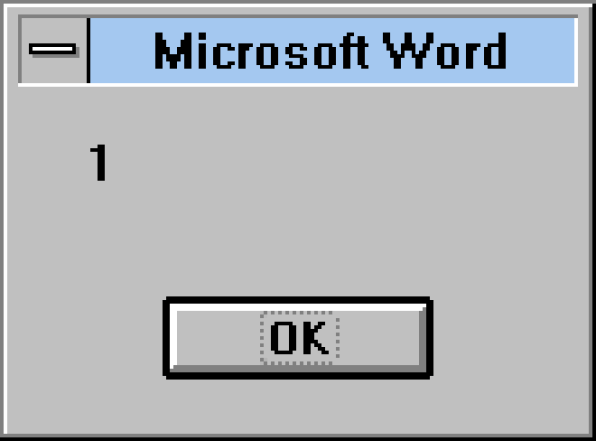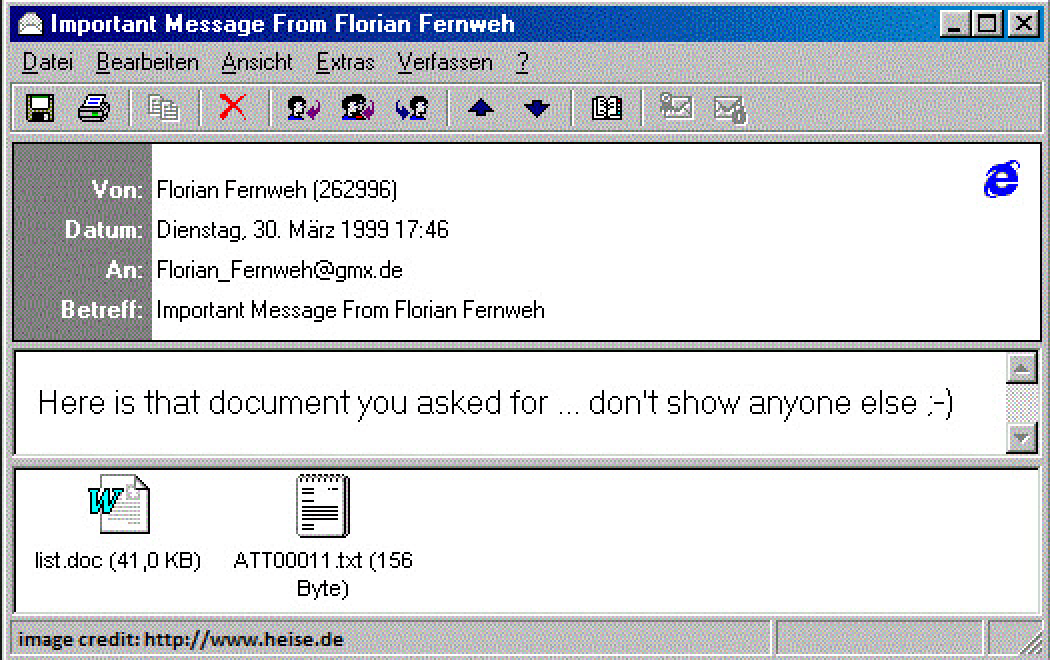

ILOVEYOU was a serious virus outbreak at the beginning of the new millennium, causing corrupted documents and love letters to be sent out on your behalf. It was not the first malware to exploit a hole in Microsoft’s e-mail client, but it changed our perception of computer system security.
In 2000… That happened in 2022, which seems like prehistoric times now. To remember the programs we used back then, you can look at archived versions of those websites now or dig up an old Windows 98 laptop from storage. It was like the Stone Age, wasn’t it? Actually not at all. Of course, by today’s standards, technology at the turn of the millennium was outdated. Most individuals connected to the internet through modem, and it was painfully slow. However, almost all contemporary network services had prototypes available at the time.
While there was radio streaming, there was no streaming of videos. Online messengers came in a broad variety. Although the development of online commerce was accelerating, ordering from a store over the phone was frequently simpler than doing so online.
Any network technology or service beginning with the letter “e-” (which stands for “electronic!”) attracted a lot of interest and funding in 2000. Later in 2001, when several internet firms failed, there was some disappointment. As a result, the industry lost some of its enthusiasm but acquired a little more sanity.
The 1998 release of the well-known film You’ve Got Mail, which is split 50/50 between a rom-com and a commercial for the then-dominant America Online, is a significant indicator of how widely used the internet was at the time.
The fact that the internet was no longer just for the affluent by the end of the 1990s—hundreds of millions of people were already using it by 2000—is significant for our narrative. As a result, email had already become a crucial tool for collaboration and communication in many businesses and government organizations, as well as among regular home users.
But in May 2000, the ILOVEYOU virus outbreak abruptly put an end to this “digital transformation,” as it would later come to be known. Due to the sheer volume of tens of thousands of love letters, many businesses were compelled to temporarily shut down their mail services.
In a strict sense, ILOVEYOU should be categorized as a network worm because it spreads throughout the network. Another distinguishing trait of ILOVEYOU was the use of a straightforward VBscript program to create the initial infection. VBscript, on the other hand, is based on the even more ancient concept of macros, which are essentially small programs that let you automate specific activities, like when working with documents.
Most frequently, macros are employed in spreadsheet programs like Microsoft Excel to carry out sophisticated calculations. Since the dawn of time, Microsoft Word has supported the use of macros to automatically create reports from data entered into forms.
The WM/Concept used this Word functionality back in 1995.
A Virus. When Microsoft Word documents were infected by this macro virus, the following message appeared when the document was opened:

It ends there. A pretty obtrusive window that constantly coming up was the only malicious functionality. Concept.A is referred to in the autobiography of former Microsoft employee Steven Sinofsky, who oversaw the creation of the company’s office solutions from 1998 to 2006. Sinofsky describes Concept.A as the initial warning sign that automation built into all Microsoft solutions could be exploited against the company’s interests. This led to the decision to ask the user whether they were sure they wanted to run a macro before displaying the message “The document contains a program.”
Malware writers started looking for ways to get around Microsoft’s limits as soon as it started to impose limitations on running macros. In March 1999, the following significant incident took place. Steven Sinofsky outlined how it worked: When you check your email, you see a message with an attached file with the title “Important message from…”.

The Melissa internet worm caused e-mail to stop working due to malicious code.
We can help you to manage any expected or unexpected issues!
CLICK HERE FOR A FREE CONSULTATIONGet in touch and let’s talk
ACUMEN IT
www.acumenit.com
info@acumenit.com
(864) 271-9000
Best IT Support for Manufacturing Companies
#Manufacturing